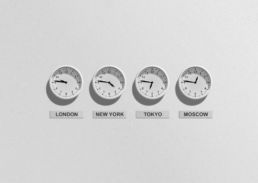The unique situation of lockdown offers most of those WFH extra hours in their day.
Disclaimer: I acknowledge this is not the case for all, e.g. those looking after relatives or home-schooling children.
We now have an opportunity to learn new skills and develop ourselves.
Productivity and energy management is even more important during these exceptional times.
Energy management helps you to manage and maximise your productivity, involving our ability to seek calm and be relaxed.
This blog will reveal some tips and tactics you can develop during lockdown to be more productive.
TIP 1: STOP WORKING AGAINST THE CLOCK
We don’t control time.
It’s fixed. There are 24 hours in a day, 60 minutes in an hour and 60 seconds in a minute, and we have no control over this.
But we do have control over what we prioritise, and our working mind set.
Working against the clock can automatically add unwanted pressure. It can bring up overwhelming feelings and a sense everything’s out of control.
Managing your energy rather than time can transform your feelings and attitude towards your working day and your sense of productivity.
It is about output – not effort/time spent.

TIP 2: SELF ASSESSMENT
There are four types of energy which you can manage:
- Mental energy = how we’re thinking
- Emotional energy = how we’re feeling
- Physical energy = how our bodies are manifesting our energy
- Spiritual energy = how connected we feel to ourselves
During your next working day, self asses and try to answer some of the following:
- How am I planning to manage my day?
- When do I tend to have most energy?
- When do I typically feel low in energy?
- Can I notice any patterns across the week?
- How does other behaviour impact you?
That conscious awareness can transform how you handle your working day.Notice at what point in that energy cycle are you completing the high impact and the high value activities. Then you can plan your daily tasks accordingly.
Often at Redtorch, tasks include content creation.
This can be campaign ideation, design work or even copy writing. Creative tasks are better tackled at periods of high energy. Low energy periods are best for more routine work.
By identifying your high energy time…
- Your work gets done quicker (ergo, you have more time to complete other tasks that day),
- The task is arguably done to a higher standard
- It could have a financial benefit to your business
Overall, you’re more productive!

TIP 3: LEARN TO BRAIN DOWNLOAD
Your brain can hold a million and one things, so relieve that mental clutter and write it down.
Start of the week, sit down and write all business tasks that need to get done – make sure they’re specific.
Ask yourself – what has to be done each day?
Then, prioritize them on a scale of 1 to 3:
- Time Sensitive
- Often client delivery/ revenue-generating
- Something only you can do
- Important, but not urgent.
- May involve longer term planning/strategy/relationships
- Tasks that aren’t crucial
- Can you delegate these tasks or set new deadlines?
Start your day with time sensitive tasks – this gives you more time to complete the important task and will help you feel less stressed and under pressure.
Follow with ‘important, but not urgent’ and finally those that ‘aren’t crucial’ – if you know these tasks need to be attended to sooner than your own time allows, see if you can delegate tasks to colleagues.

TIP 4: BATCHING
Batching is grouping similar tasks into blocks of time as different tasks equire different forms of thinking and energy.
Batching ensures your brain is not needing to switch between different types of tasks, and you become more efficient = more productive.
At Redtorch we have Social Media Editors who handle multiple clients.
They create and schedule posts each day, whilst staying within brand guidelines and the client’s tone of voice.
Instead of erratically dipping in and out of this creative mindset each day, batching these daily tasks together is more productive.
The same school of thought applies to all areas of the working world. Identify what tasks require similar thought process’ and outputs and plan your day around these batches.
This skill will improve your thought process, efficiency and thus productivity.

TIP 5: EAT YOUR FROGS
Yep, you heard correct, eat your frogs.
Brian Tracy coined this metaphor; the frog symbolises the ugly/ annoying but important task that needs to be done but you have no motivation to take on.
When you’re in your high energy state, at your brightest and most productive (this could be morning or afternoon, it varies from individual to individual), that’s when you eat the frog.
This tip is a way to manage your procrastination (we all do it) or fretting over work you’re not doing.
If you know you’ve got a dreaded task, during your high energy state, set aside 60 – 90 minutes of uninterrupted time to take care of frog business.
For some, tackling the most complex/difficult task first can free your mind to focus on other work.
You need to be honest with yourself about what works best for you.
Consequently, you will feel more relaxed about any interruptions and unexpected meetings that crop up during the remainder of the day.

MOVING FORWARD
By no means can these skills be perfected in a day, but they are something you can build on and develop overtime.
You will begin to notice your brain naturally incorporating these tactics into your working life (and perhaps personal too).
Some of us have more time now and it’s the perfect chance to challenge and self-develop.
Pick one of these tips that you think might work best for you and your mindset and begin practicing – your brain and stress levels will thank you.
Stay safe and self-develop peeps. ✌️
Jess Reus
I am a food-loving, dog-appreciating, hockey player.
My most memorable sporting moment is…
Full on face planting on the Spine Ramp at FISE Montpellier in front of a crowd of 6,000 people and a load of professional Skateboarders...
I am happiest when …
I have food in my mouth.
The sports person that best represents me is …
Kate Richardson-Walsh.
The three things at the top of my bucket list are …
1. Travel around China and Japan
2. Meet Trixie Mattel
3. Learn a second language
A quote I live my life by is …
“They say I'm the Hottest MC in the Game. If you label me that, I will live up to it. Trust me.” – Lil Wayne.




